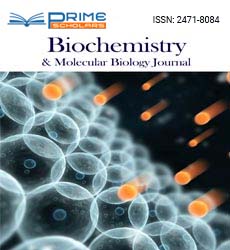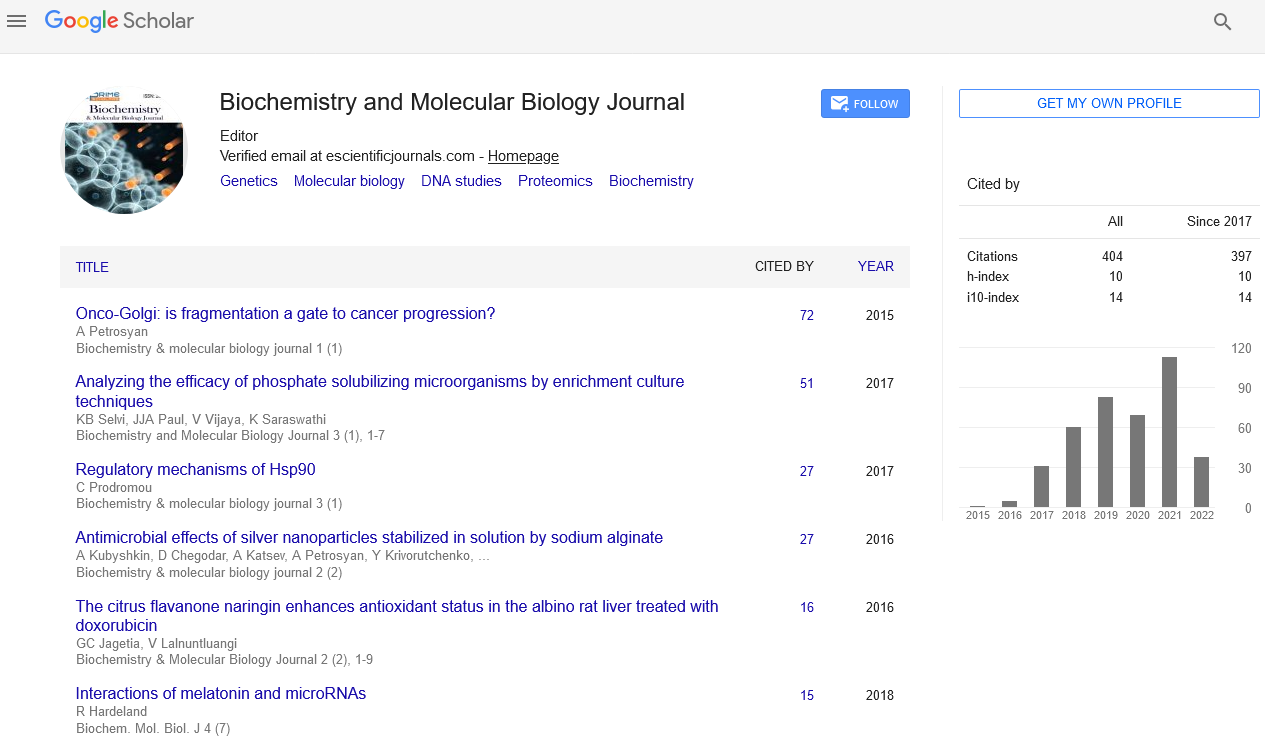Perspective - (2024) Volume 10, Issue 4
Protein Misfolding Cyclic Amplification: A Breakthrough in Disease Diagnosis and Research
Jiquan Klaus*
Department of Biochemistry, Sejong University, South Korea
*Correspondence:
Jiquan Klaus,
Department of Biochemistry, Sejong University,
South Korea,
Email:
Received: 31-Jul-2024, Manuscript No. IPBMBJ-24-21597;
Editor assigned: 02-Aug-2024, Pre QC No. IPBMBJ-24-21597 (PQ);
Reviewed: 16-Aug-2024, QC No. IPBMBJ-24-21597;
Revised: 21-Aug-2024, Manuscript No. IPBMBJ-24-21597 (R);
Published:
28-Aug-2024, DOI: 10.36648/2471-8084-10.04.40
Introduction
Protein misfolding cyclic amplification is an innovative technique
used to study and detect misfolded proteins, particularly
those associated with neurodegenerative diseases like prion
diseases and Alzheimer’s disease. This method amplifies minute
amounts of misfolded proteins, allowing for their detection and
characterization, which is crucial for understanding disease
mechanisms and developing diagnostic tools. This article explores
the principles of PMCA, its applications, and its potential impact
on disease research and diagnostics. Protein misfolding cyclic
amplification is based on the concept of amplifying misfolded
proteins through a cyclic process. The technique is designed to
detect and quantify prion proteins and other misfolded protein
aggregates that are present in extremely low concentrations.
Description
PMCA has broad applications in both basic research and clinical
diagnostics: Prion diseases, such as Creutzfeldt-Jakob disease
and bovine spongiform encephalopathy, are characterized
by the accumulation of misfolded prion proteins. PMCA has
been instrumental in studying these diseases by enabling the
amplification and detection of prion proteins from infected tissues
or biological fluids. This has enhanced our understanding of prion
pathogenesis and contributed to the development of potential
therapies. In Alzheimer’s disease, abnormal accumulation of
amyloid-beta plaques and tau tangles are hallmarks of the
condition. PMCA can be used to study the misfolding and
aggregation of these proteins. Researchers use PMCA to investigate
how amyloid-beta and tau proteins aggregate and to identify
potential biomarkers for early diagnosis and therapeutic targets.
PMCA offers a powerful tool for diagnosing prion diseases and
other protein misfolding disorders. By amplifying and detecting
misfolded proteins present in patient samples, PMCA can provide
early and accurate diagnosis, which is crucial for effective disease
management. For example, PMCA has been used to detect prion
proteins in cerebrospinal fluid and tissue samples, improving
diagnostic accuracy. PMCA is also employed in drug discovery and
development. By using PMCA to screen for compounds that inhibit
or reverse protein misfolding, researchers can identify potential
therapeutic agents for prion diseases and other protein misfolding
disorders. This application is valuable for developing treatments
aimed at preventing or slowing disease progression. PMCA offers
several advantages over traditional methods for studying and
detecting misfolded proteins: PMCA can detect extremely low
concentrations of misfolded proteins, which is crucial for diseases
where protein aggregates are present in minute quantities. This
high sensitivity improves the chances of early diagnosis and
accurate disease monitoring. The cyclic amplification process
enhances the specificity of detection by selectively amplifying
misfolded proteins. This reduces background noise and increases
the likelihood of identifying the target proteins. PMCA is
performed in vitro, which allows for controlled experimental
conditions and avoids the ethical concerns associated with animal
testing. Researchers can study protein misfolding in a controlled
environment, facilitating the investigation of disease mechanisms
and therapeutic interventions.
Conclusion
Contamination with non-specific proteins or other impurities can
affect the accuracy of PMCA results. Ensuring sample purity and
proper handling is essential for reliable outcomes. In conclusion,
protein misfolding cyclic amplification represents a significant
advancement in the study and detection of misfolded proteins.
Its high sensitivity and specificity make it a valuable tool for
researching prion diseases, Alzheimer’s disease, and other protein
misfolding disorders. As research progresses and technology
advances, PMCA has the potential to revolutionize disease
diagnosis and therapeutic development, ultimately improving
patient outcomes and advancing our understanding of complex
diseases.
Citation: Klaus J (2024) Protein Misfolding Cyclic Amplification: A Breakthrough in Disease Diagnosis and Research. Biochem Mol Biol J. 10:40.
Copyright: © 2024 Klaus J. This is an open-access article distributed under the terms of the Creative Commons Attribution License, which permits unrestricted use, distribution, and reproduction in any medium, provided the original author and source are credited.

